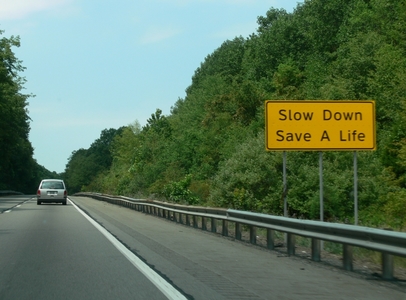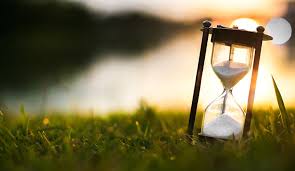
In our culture the idea of slowing down tends to be associated with old age or infirmity of some kind, rather than something we would do by choice to enhance our health and well-being. It is not unusual for someone to comment “Oh poor thing, he is slowing down” when they observe someone who has become frail going about their daily activities at a slower pace. In a world where achievement is everything, we pity those who cannot maintain the hectic pace. Burn out has become a badge of honour (if you have not been diagnosed with adrenal fatigue YOU ARE NOT WORKING HARD ENOUGH!!) and the question we ask a stranger at a party is not “Who are you?” but “What do you do?”
It has always been a cause of some hilarity amongst the people who know me the best that I chose yoga as my profession, when it is widely known that I cannot sit still. I am a DO-er, and while others talk at length about the merits of BEING I would be DOING the washing up, popping the hoover round, knocking up a batch of scones and emptying the bin whilst taking a phone call preferably with a duster strapped to each foot so I could polish the floor at the same time. I always start the day with a list and tell myself that only when EVERYTHING on the list is done can I do the stuff I actually WANT to do like take a nap, play the piano, make some jewellery or watch a film. And guess what. Most days I don’t get the list done (and if it looks like I might I can always add more….). People like me are almost impossible to help. If a kind bystander offered to do some of my chores for me, to give me time to rest, I would let them water the garden and cook the tea, but I would then use that time to sand down a table or empty the loft.
I remember as a kid I loved nothing more than to curl up in a chair with an adventure story and lose an afternoon, but even back then there never seemed to be enough time. There was always so much to DO: school, theatre group, cello and piano practice, homework and chores. As a result I only really ever read in bed, a habit that followed me into my adult life. Somewhere along the line I internalised the belief that ‘doing nothing’ was both lazy and a waste of time so if it must be done, do it in secret!

Brene Brown (researcher and author) says that one of the pillars of cultivating a whole hearted life is to “cultivate play and rest and to let go of exhaustion as a status symbol and productivity in place of self-worth”. Wise words. Luckily I am ageing, so whereas in my thirties and forties I could run on empty and had seemingly boundless energy (though in truth I was living on coffee, sugar and cigarettes) now I just run out of steam. Most afternoons I take a nap, and sometimes the same list is on the fridge for days on end until eventually I just rub it out. I am slowing down, but I still feel guilty when I am not busy. And I feel as if I SHOULD be busy, ALL of the time.
In her article in Yoga Journal “Busyness Plan” Sally Kempton talks about the difference between internal and external busyness and how to tell them apart, I found this very useful and it totally busted my “Yes well I WOULD love to have a sit down I really would” narrative. She explains there are two types of busyness
- External busyness – the pressure that comes from genuinely having a lot to do
- Internal busyness – the breathless, stress-triggering fear that you have too much to do and not enough time to do it
So how do you know if you are suffering from internal busyness? What happens when you have a moment when there appears to be nothing pressing that needs doing? Can you rest into that moment and catch your breath or do you still feel wound up and sure that there is something really important that you have forgotten to do? If the latter, then I am sorry to tell you, you have Internal Busyness Syndrome.
Internal busyness makes you feel as if you are clinging on to a horse that has bolted – not in control and deeply afraid of what might happen if you let go. This fear stimulates the release of more adrenaline and that in turn makes you feel even more scattered and on edge. You are also more likely to begin to rely on sugar caffeine or nicotine to bypass the need for rest. In this heightened state you tend to get impatient with the people around you and then berate yourself for your snappy behaviour. You begin to dread running into friends while you are out on a walk, (which is of course being monitored by your Fitbit and timed) because you simply can’t afford to stop for a second to say hello. Interestingly believing yourself to be short of time not only means you are more likely to ignore your own needs such as the need for rest and play, but also more likely to ignore a cry for help from someone else. In the famous Good Samaritan study, trainee priests on their way to a seminar, came across a stranger in a state of collapse in their path. The experiment showed that those participants who had been put under additional pressure NOT to be late for the seminar were less likely to stop and offer assistance. You can read the full experiment here http://faculty.babson.edu/krollag/org_site/soc_psych/darley_samarit.html
This study points to the cause of internal busyness: our attitude to time. This is beautifully explained by Lynne Twist in her book “The Soul of Money”
“..for many people, the first waking thought of the day is ‘I didn’t get enough sleep’. The next one is “I don’t have enough time’. Whether true or not, that thought of not enough occurs to us automatically before we even think to question or examine it. We spend most of the hours and the days of our lives hearing, explaining, complaining, or worrying about what we don’t have enough of….before we even sit up in bed, before our feet touch the floor, we’re already inadequate, already behind, already losing, already lacking something. And by the time we go to bed at night our minds are already racing with a litany of what we didn’t get, or didn’t get done, that day. We go to sleep burdened by those thoughts and wake up to that reverie of lack…this internal condition of scarcity, this mind set of scarcity, lives at the very heart of our jealousy, our greed our prejudice and our arguments with life…”

So when we believe we are short of time, what activities end up on the cutting room floor? The fun stuff, the play, the rest, the sitting on a sun lounger with a book open on your lap watching the birds, the long chat with a friend over a cuppa, in short, all the things that do not yield a quantifiable result but that make life worth living. Doing something “just for the fun on it” becomes increasingly rare the busier we get. We have so much to do and so little time to do it in, that even the thought of deviating from the to-do list can cause more stress. Our time is precious and cannot be wasted! We begin to equate play, rest and even sleep as things that we do not have time for. Whatever it is we are doing, working, gardening, raising a family, studying, we keep our noses to the grindstone and plough on relentlessly. And what is the impact of this on our lives? Brene Brown says
“Consider this: the opposite of play is not work, but depression.”
And is it really true that we have no free time? When you see footage of adult polar bears sliding down banks of ice, only to climb up and slide down again, it is clear that they are playing. So even in the harsh conditions of an Arctic winter, our planets biggest land based carnivore, that relies on a landscape decimated by global warming to hunt and provide for its young, finds the time to do something just because it is fun. And yet we can’t.

And if we take a closer look at some of the things we do that appear not to have a measurable outcome, what is our real motivation? Do we meditate because MRI studies proved that it can increase activity in the “happiness” section of the brain? Do we do our yoga practice because it recharges our batteries and allows us to overwork? There is a very real risk that even our spiritual practices are feeding the ego’s lie that if we’re going to spend time on something, it needs to produce a measurable result. Once upon a time you went for a walk to get some gentle exercise, clear your head, engage with nature, perhaps stop and chat to a stranger. Now? It’s about “getting your steps in” or beating yesterday’s time. Yuck. When I go for a walk I see so many people grimly striding along eyes glazed, earphones in and nine times out of ten they would walk right past me with no eye contact no smile nothing. I make it my business to wave and call out a cheery hello, and usually they reciprocate when they feel they must, though there are a few that will carry on grimly determined as if they had not seen me. My favourite though are the REAL hard-core elite who respond with a grimace, a tut or even an eye roll, all of which I must confess make me laugh uncontrollably. When I discovered that the “10,000 steps a day” idea came not from research into the health benefits of walking but from an advertising campaign to sell…..wait for it…..a device you wear on your wrist to count your steps, I didn’t know whether to laugh or cry. Now don’t get me wrong we do need to move, especially if our jobs are sedentary or we have impaired mobility, but we also need to have fun, rest and SLOW DOWN.
It’s normal and healthy to derive a sense of self-esteem from your achievements, but an addiction to busyness is the work of the ego. “If I’m busy, that means I exist. I’m worthwhile and I am wanted.” At the core of this belief is a terror of emptiness.
“It is the work of the ego to create fear of absence, for absence gives the ego nothing to manipulate. The ego can work with anything but it cannot work with nothing. “(Simon Parke “The Journey Home”)
And when you DO allow yourself to rest in the emptiness, it is not frightening at all, it is sheer bliss. Try it.
Over the past two months we have all been given an unprecedented opportunity to slow down, and more and more people are experiencing for themselves what a potent manoeuvre this can be. But like every new habit it takes practice. So here are a three practices for you to try. They only take a few moments, can you spare the time??
Xx Michelle
Slow the pendulum
RIGHT NOW stand tall and begin to sway slowly from side to side so you feel the weight shift from one foot to the other from one side of the body to the other. At the end of each movement, notice the pause. Tune in to the pause on the right side, then on the left. Focus on the pause and let the movement flow from the pause, your movements getting smaller and smaller until you become still in the centre
Who Am I?
STOP. Close your eyes. Ask yourself, “When I’m not busy, not productive, who am I? When I’m not thinking, not moving, not emotionally engaged, not talking or listening, not thinking or planning who am I?” Hover in this space for five deep breaths and observe what, if anything arises.
Hit the Pause Button
STOP. Wherever you are, whatever you are doing become totally still.
Say to yourself out loud
“I have all the time in the world.” as you breathe deeply and slowly five times.
